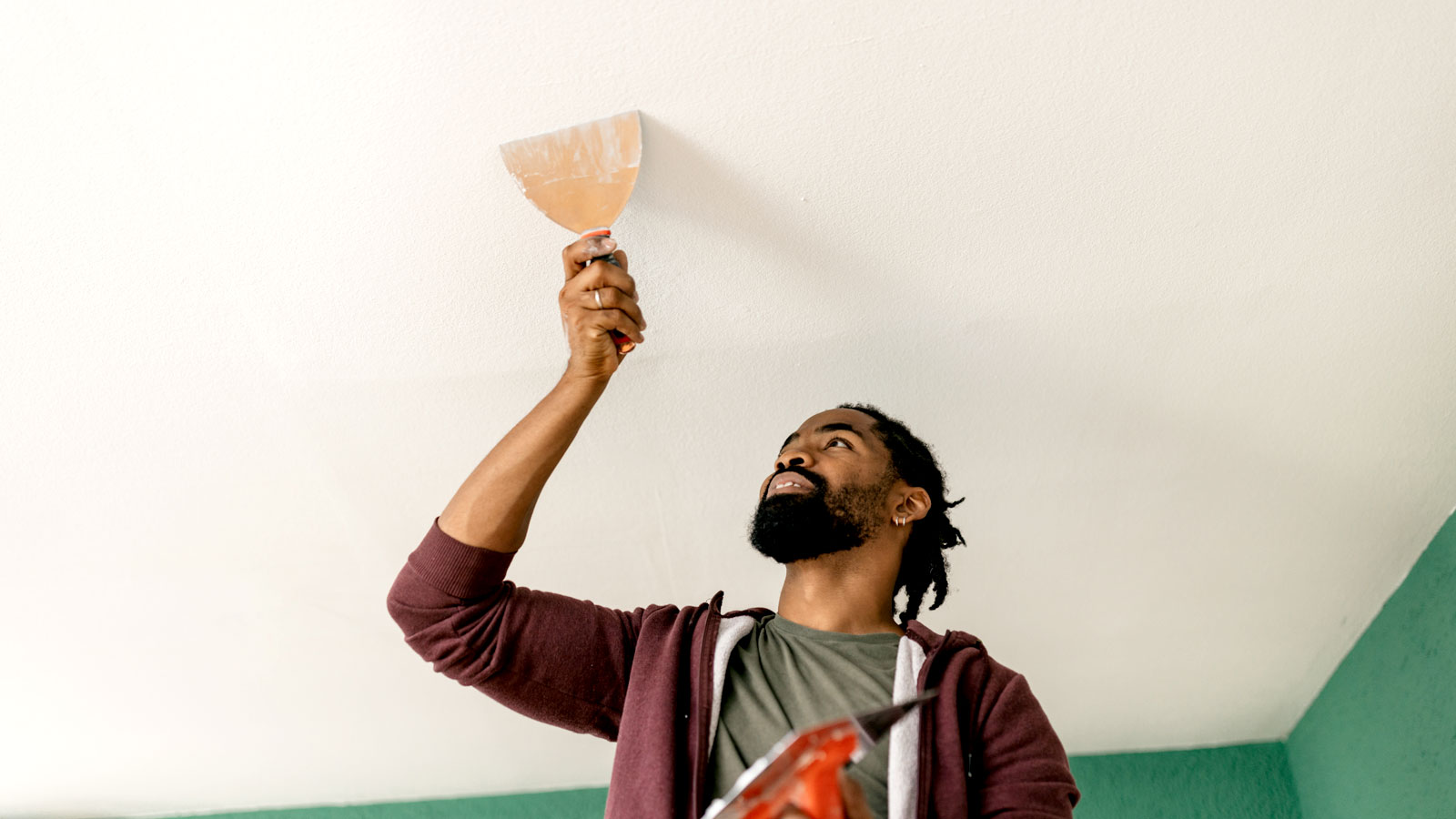Roof lantern or skylight: Which is the best option for you?
Trying to choose between a roof lantern or skylights? To make the decision a little easier our guide is here to explain the differences between the two and their pros and cons
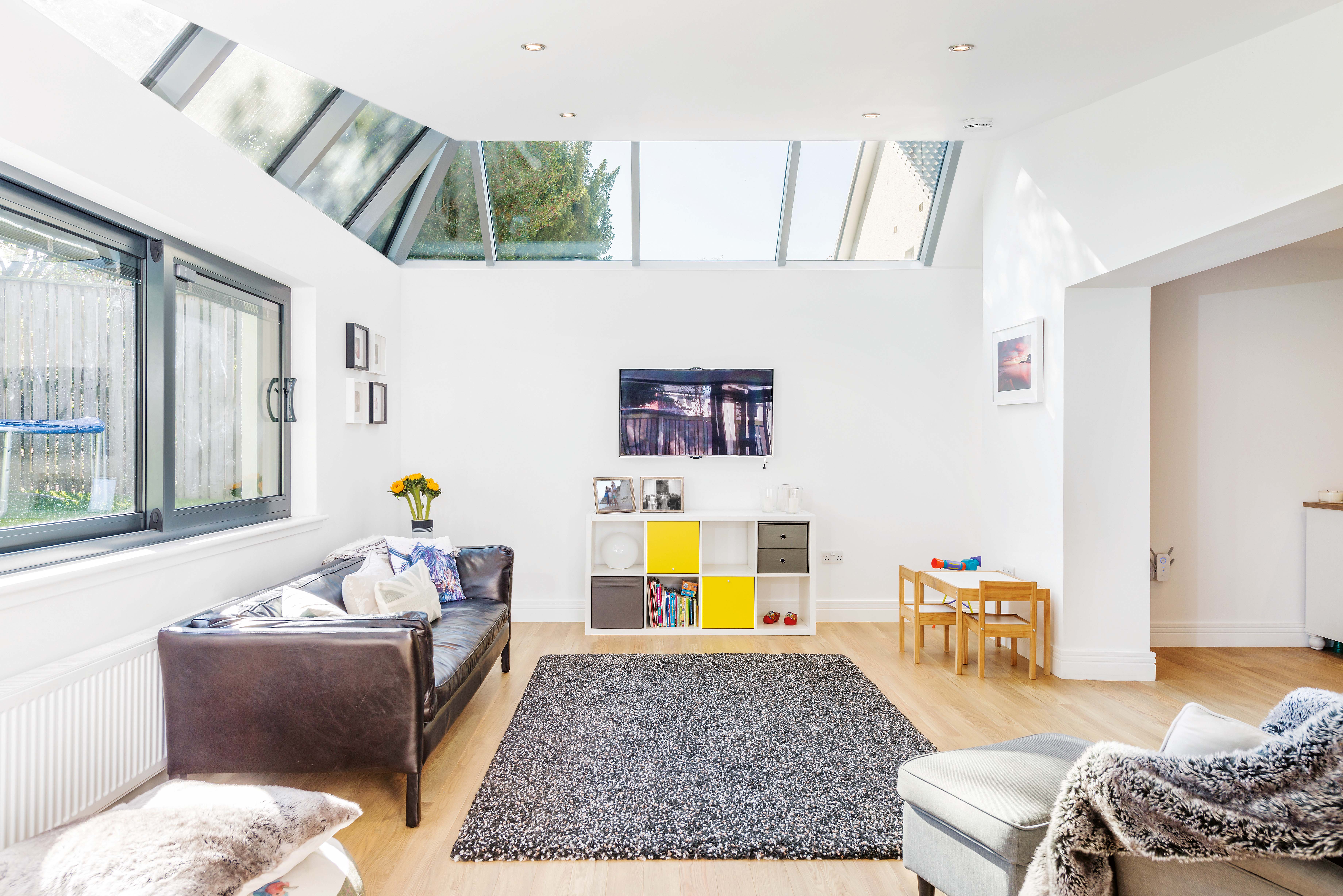
Making the decision between a roof lantern or skylight can be tricky — after all, both come with a whole host of benefits and can completely transform the way your home looks and feels, as well as the ways in which you can use it.
That said, not all ceiling glazing and rooflights will suit all house styles and some may well not fall within your budget. The kind of light that is brought into from above is quite different from that which enters through standard windows and both skylights and roof lanterns can make it possible to flood a space with natural light where regular windows might not be allowed or be hard to install.
In this guide, we explain exactly what skylights and roof lanterns are, how they are installed, how much they are likely to cost and their pros and cons so that you can make an informed decision when it comes to selecting the right option for you.
Rooflight, roof lantern or skylight: What's the difference?
The terminology surrounding different kinds of ceiling glazing can be quite confusing, with the names for the different windows styles and fittings often being used interchangeably. It is also not uncommon for brand names to be used generically to describe the various products available.
For example, the terms rooflight and skylight tend to be used to describe a whole host of various roof-based glazing systems — including bespoke roof lanterns. According to the experts at Duplus, the term skylight is used more widely in the USA and the term rooflight is used more widely in the UK and Europe.
So, just what is what in the world of ceiling glazing?
What is a skylight?
As mentioned above, skylights are also often referred to as rooflights, roof windows and, occasionally, by the brand name Velux.
"Rooflights are ideal for introducing light into spaces where conventional vertical windows can't be installed, whether that's for functional or aesthetic reasons," explains Mark Brinkley, author of the Housebuilder’s Bible and an experienced self builder.
"A rooflight is an opening in a roof designed to let light in. Behind the apparent simplicity of the definition lies a diverse group of products with differing purposes and very different price points, such as simple fixed skylights, costing a few hundred pounds at most, right up to huge glazed openings sometimes costing as much as a small house."
Skylights can be fixed, designed only to let light, in or opening, in which case they can also ventilate a space. Their operation can be manual (usually via a long pole) or electric, which makes life easier in the case of hard to reach areas. These electric skylights can also come complete with weather sensors meaning they close automatically when wet weather hits.
Frames can be made from all kinds of materials, from timber to steel, aluminium and uPVC.
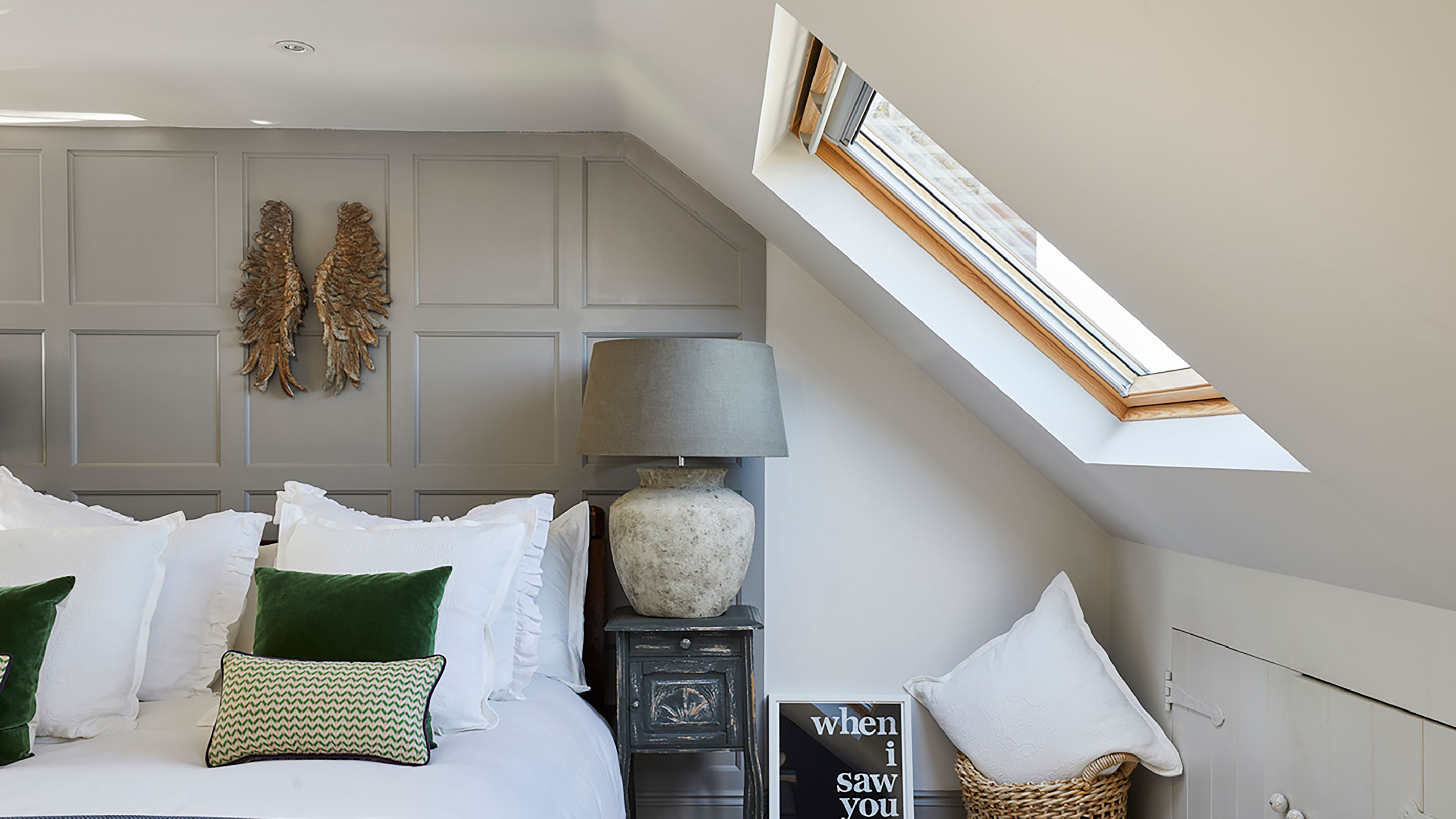
What is a roof lantern?
Roof lanterns (also totally confusingly sometimes referred to as rooflights or 'glazed viewing boxes') protrude out from the roof, as opposed to lying flat or completely flush as is the case with skylights.
They come in all kinds of sizes and shapes, such as pitched polygons, barrel vaults and pyramids, as well as more standard square or rectangular boxes.
Although they are most commonly fitted into flat roofs, they can be specified for pitched roofs, where they are installed along the ridge.
Frames are usually made from timber or powder-coated steel, although uPVC (usually reinforced) is another option.
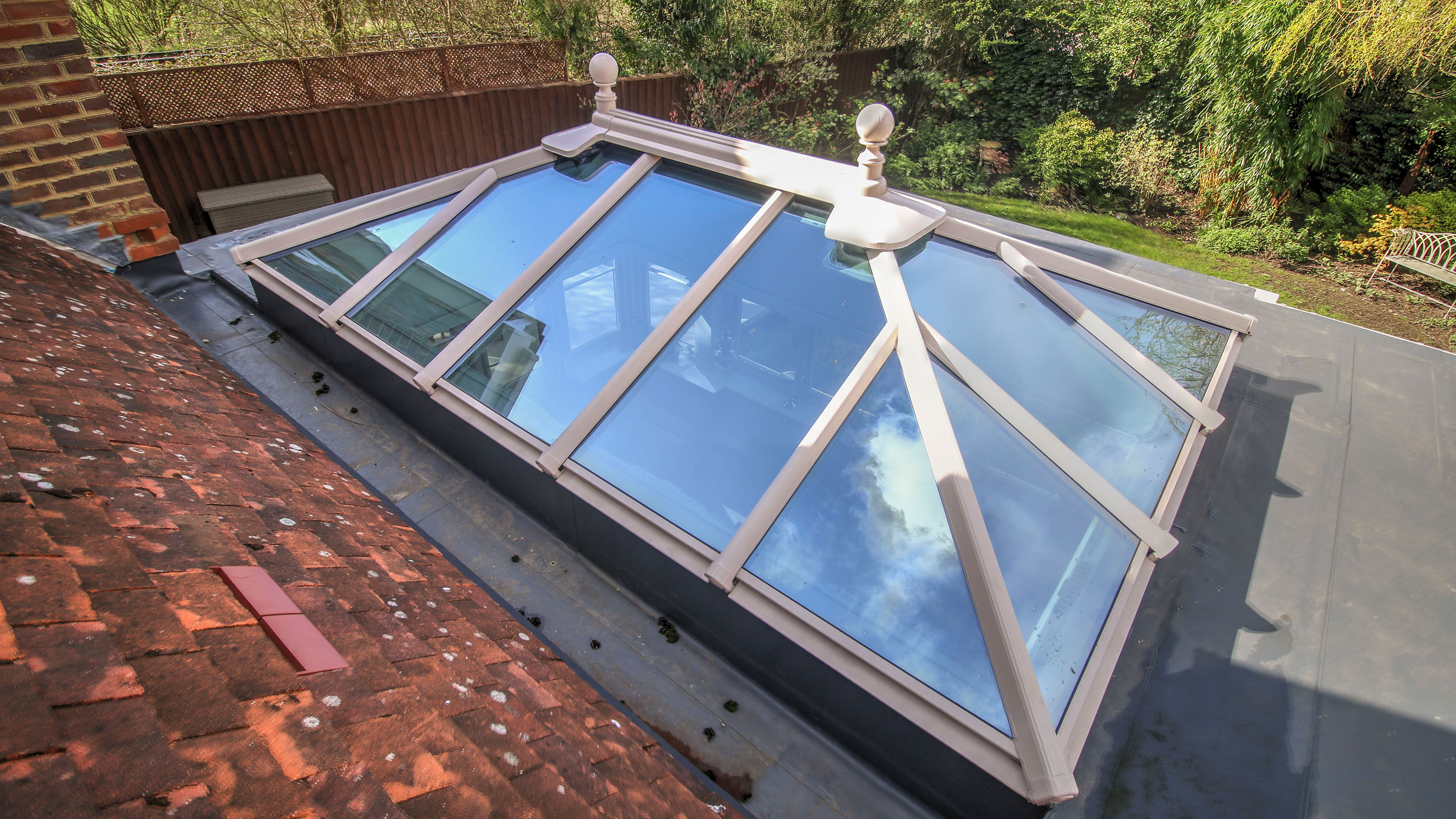
Are skylights cheaper than roof lanterns?
In general, yes, skylights are a cheaper option than most roof lanterns. The lowest cost option for those on a tight budget are fixed skylights, or those operated manually with a pole. If you wanted to upgrade to electric roof windows you would need to spend a few hundred pounds more. Prices begin to rise further for those with rain and fire sensors.
At the lowest end of the price scale lie very basic skylights, with polycarbonate in place of glass — these can be found for as little as £250. If, however, you opt, as most people do, for glass, you are looking at costs of around double this. If you have a bespoke skylight made you are looking at costs that run well into the thousands.
In the case of roof lantern cost, small, simple box-style lanterns, made from uPVC start at between £600-£700, uninstalled. For a timber or aluminium lantern in the same style you are looking at starting prices closer to £1,100.
Of course the larger and more complex the roof lantern, the higher the costs. "There is a big premium for bespoke skylights or lanterns, made individually to your own specifications," says Mark Brinkley.
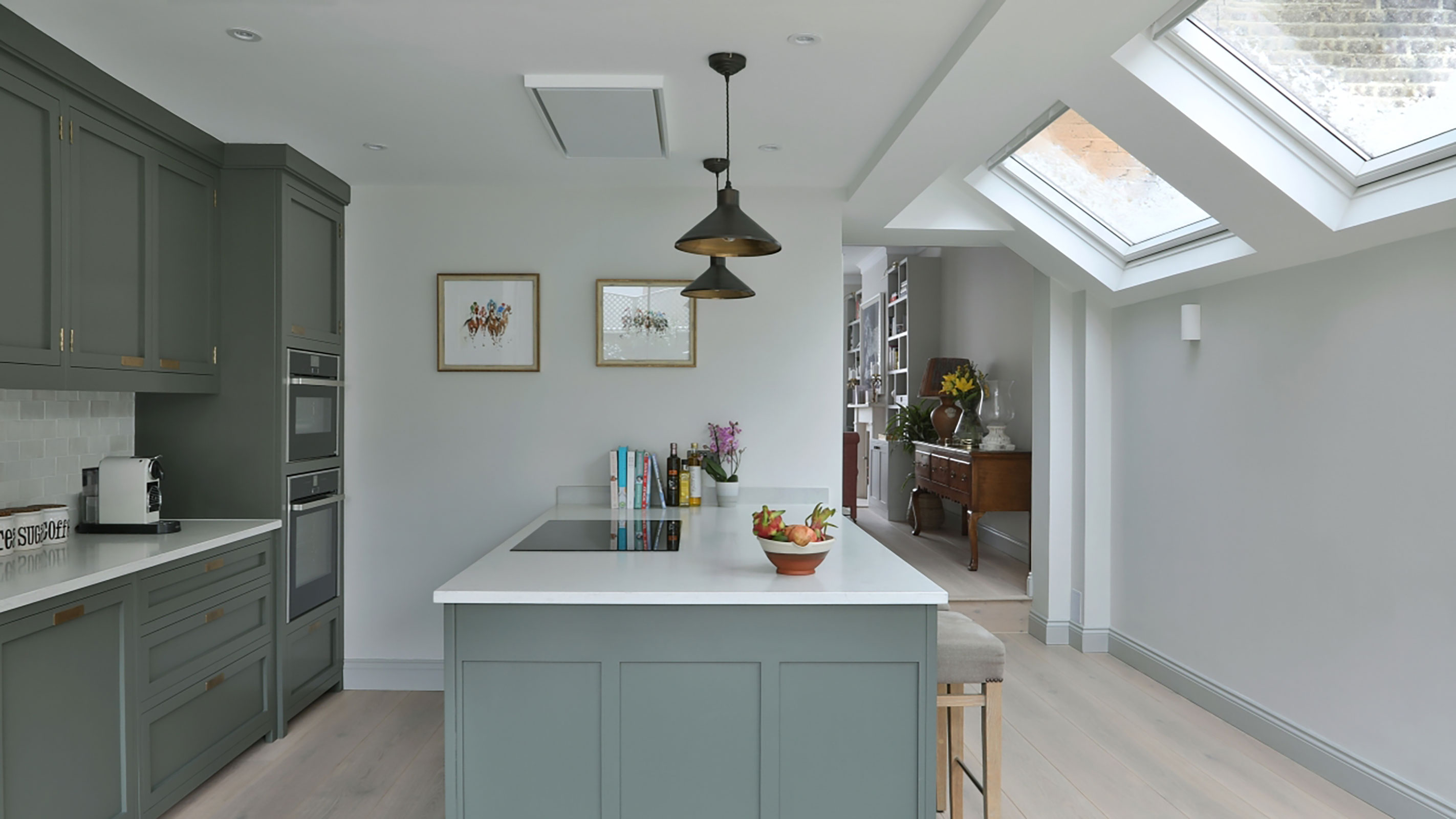
Are skylights easier to install than roof lanterns?
The size and complexity of the skylight or roof lantern will have more of an effect on how simple or complicated they are to install than which you opt for.
When it comes to skylights, a carpenter, roofer or sometimes even your builder should be able to fit them for you. The other option is to choose a supply and fit service from your supplier. If any rafters need to be cut to install the skylights (they won't always be), you will need to consult a structural engineer.
In the case of roof lanterns, some are easier to install than others. For example, Korniche supply their roof lanterns in kit form, requiring no cutting, trimming or silicone sealant and say they are designed to be fitted in minutes.
As with skylights, roof lanterns will usually fitted by a carpenter, roofer or the company supplying the roof lantern.
Do you need planning permission to install a roof lantern or skylight?
In the majority of cases, both roof lanterns and skylights will fall under your permitted development rights.
However, if you live in a designated area or in a listed building, you may well have to apply for planning permission. There may be a requirement for 'conservation rooflights' in this instance.
For roof lanterns to fall within your permitted development rights, they must adhere to the following regulations:
- The roof lantern must not protrude any higher than 150mm from the existing roof plane
- It must not be any higher than the highest section of the house roof
- Roof lanterns placed in a side elevation roof slope must use obscure glazing
- No roof openings should be present, unless the height is at least 1.7m above the floor
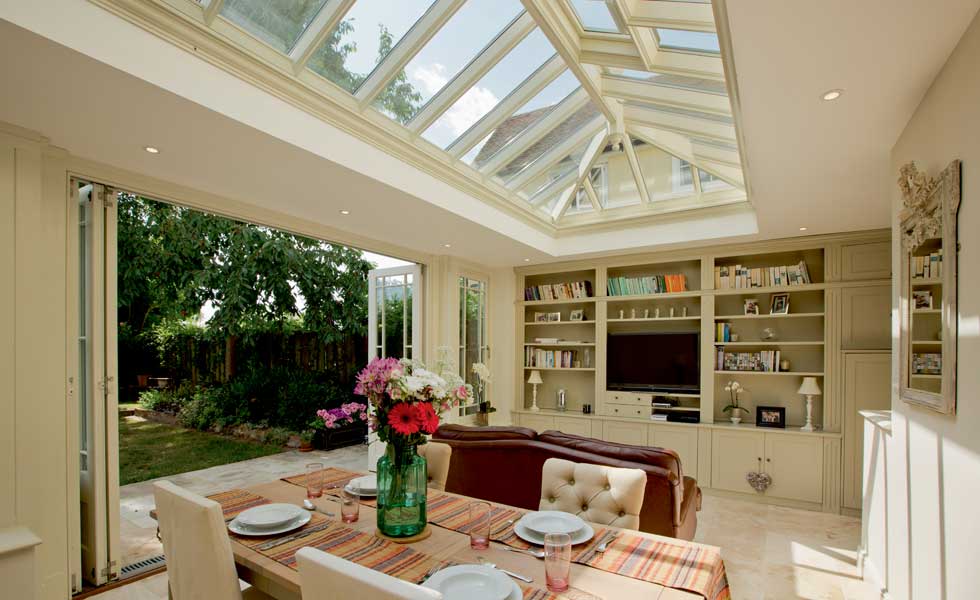
Pros and cons of skylights vs roof lanterns
There are benefits and disadvantages to skylights compared to roof lanterns, so just what can you expect if you select this option?
Pros:
- Cheaper to buy and install
- More opening options
- A great option for pitched roofs (flat skylights can be used on flat roofs too)
- Perfect for simple loft conversions
- Easy to clean (some come with self-cleaning glass)
- Planning permission rarely required (unless you're in a designated area or live in a listed building)
- Visually unobtrusive
Cons:
- Don't make as much of an architectural statement as lanterns
- Need numerous skylights to illuminate larger spaces
- Could cause overheating if installed in large numbers
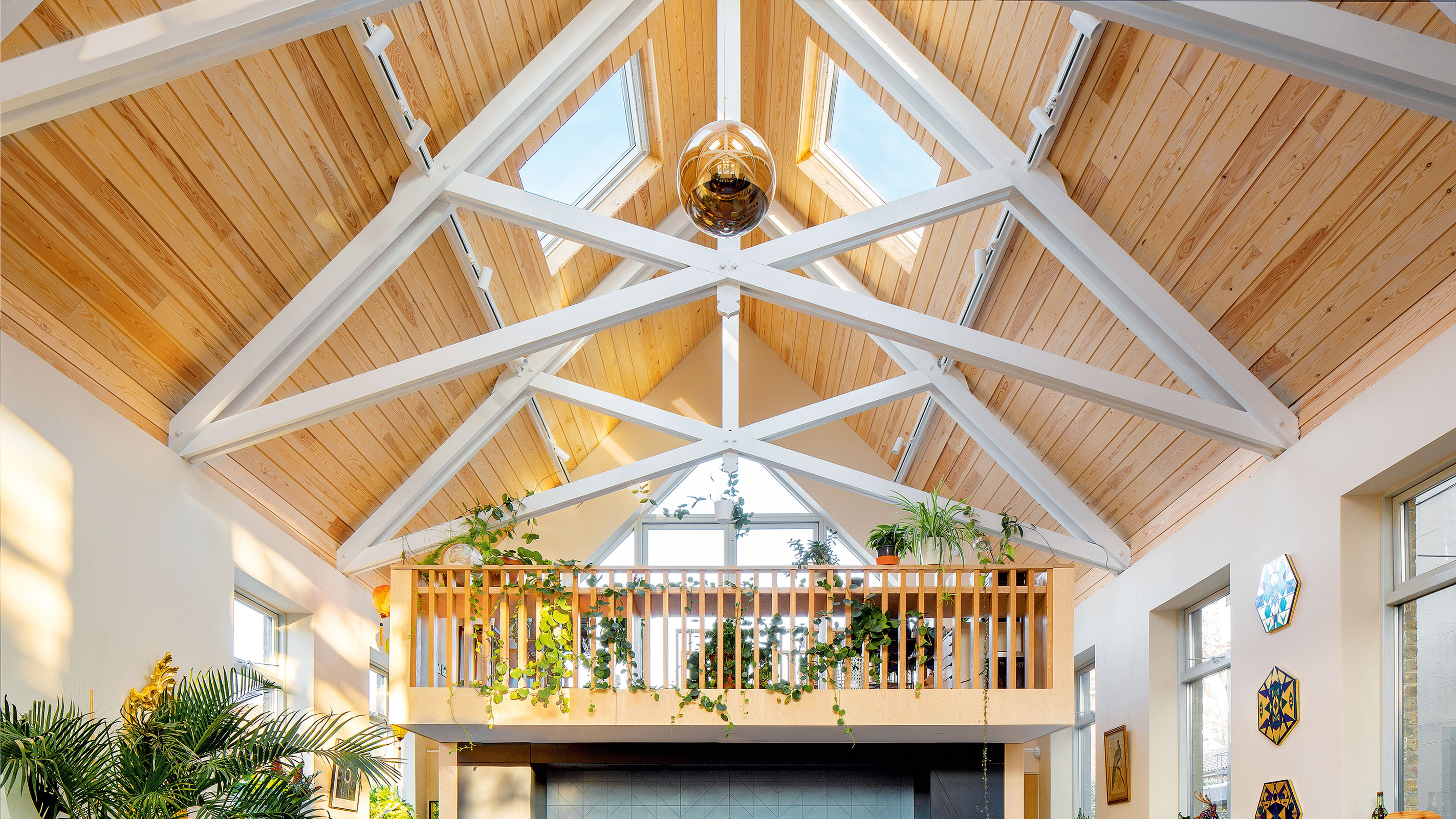
Pros and cons of roof lanterns
Of course roof lanterns also come with their highs and lows.
Pros:
- Channel light from all angles
- Make a striking architectural statement
- The ideal solution for flat roofs and flat roof extensions
- Provide additional ceiling height
- Help to make a space feel bigger
- Can really enhance period properties
- Can be supplied ready-built to be installed quickly
Cons:
- More expensive
- Harder to keep clean (also these too can be specified with self-cleaning glass)
- More likely to cause overheating than one small skylight
Get the Homebuilding & Renovating Newsletter
Bring your dream home to life with expert advice, how to guides and design inspiration. Sign up for our newsletter and get two free tickets to a Homebuilding & Renovating Show near you.
Natasha was Homebuilding & Renovating’s Associate Content Editor and was a member of the Homebuilding team for over two decades. In her role on Homebuilding & Renovating she imparted her knowledge on a wide range of renovation topics, from window condensation to renovating bathrooms, to removing walls and adding an extension. She continues to write for Homebuilding on these topics, and more. An experienced journalist and renovation expert, she also writes for a number of other homes titles, including Homes & Gardens and Ideal Homes. Over the years Natasha has renovated and carried out a side extension to a Victorian terrace. She is currently living in the rural Edwardian cottage she renovated and extended on a largely DIY basis, living on site for the duration of the project.

